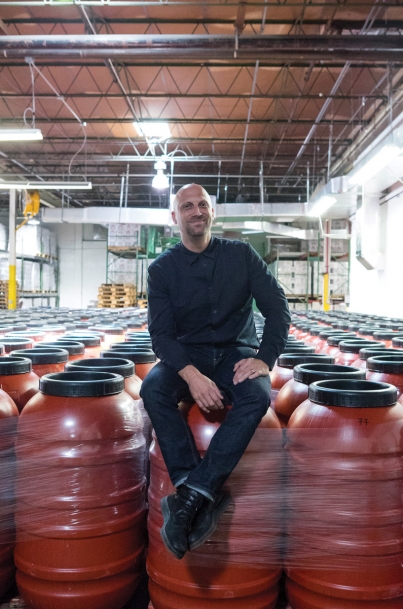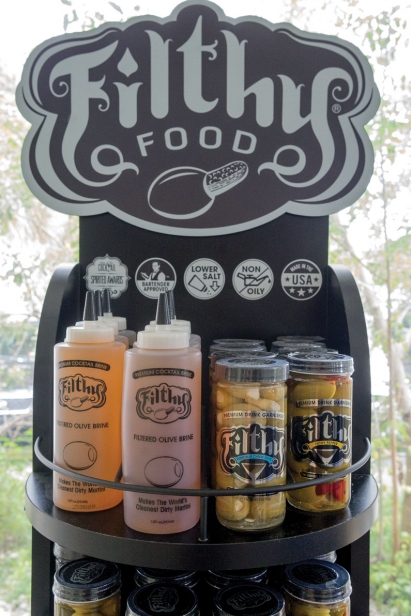Filthy Food: A Man, a Plan, a Martini
This is the story of Daniel Singer and Filthy Food. Born in the UK, he studied acting at the prestigious Royal Shakespeare Company. While there, he and his wife Kim got pregnant with their first child. He started thinking about fatherhood and the journey ahead. But it was never about building a garnish company, it was about being 100 percent committed to a passion: “Being an entrepreneur is the most uncertain life you can offer your family.”
The quality of self-awareness is key to Singer. Dyslexic as a child, he couldn’t read, so he would talk and listen, which he says made him a problem solver. As the oldest of four children, he was propelled into a leadership role. And living in London as a Jewish child, he grew up around anti-Semitism. “Being a minority gives you an advantage, makes you a fighter.”
Olive Love
As they started to build the business from the bottom up, the brothers realized they had no resources or contacts. They single-handedly needed to pioneer a whole new garnish space. At the time, they discovered nobody cared much about olives. But they did: “The olive before Filthy was not created with a cocktail in mind. Filthy is.”
Olives need to be cured to be consumed. Many companies use lye for four to five days, which reacts with the acids in the olives to remove bitterness. Treating with lye also removes flavor, so salt and oil are usually added back in. This is what results in your martini having that “gas slick” look. Filthy does not use lye in their olives because they believe it’s harmful to the flavor of the olive, removing the nuttiness and thickening the skins. Other methods include curing in brine, dry-curing in salt, and curing in water alone or air, depending on the type of olive. After researching over 200 varieties of cultivatable olives, they landed on their olive, a coastal Greek olive.
While searching the world for the perfect cherry, Daniel and Marc landed in Bologna, Italy, where they discovered the wild, bitter cherry called the amarena. They spoke to Italian chefs and figured out that slow cooking the cherry in copper pots offered a beautiful sweet front and a tart finish, perfect for a Manhattan or Old-Fashioned. Other dark cherries in the market, overtaken by sugar, have one sweet note and no complexity. With the renaissance of American whiskey, Filthy thought they could contribute to the story bartenders were telling with those drinks – and this turned out to be the first-ever garnish to be nominated for a Tales of the Cocktail Spirited Award.
In the Marketplace
Miami Beach was the first place where Filthy landed. The first to give Filthy a chance were Gabe Orta and Elad Zvi of the famed Bar Lab Cocktails, who carried the garnishes at the Living Room in the W Hotel, Miami Beach. John Lermayer, now owner of Sweet Liberty, was the first to introduce it to New York by way of the Mondrian. Armed with a backpack, Daniel walked into account after account introducing Filthy to like-minded bartenders, who turned it into a word-of-mouth brand. In 2012 that Filthy picked up liquor distribution.
Now headquartered in Miami, Filthy Food continues to expand throughout North and South America with no signs of slowing. What was once an entrepreneur’s dream became a reality with the help of friends and family. Says Daniel, “Miami is one of the owners of this company. We would never have the same success if we would’ve started in another city.”






